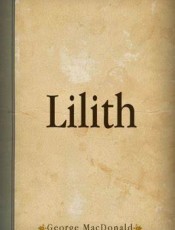“well,” cried creel, “you have sown your wild oats and reaped a whirlwind; and now at last is the calm; and you shall sit under your fig-tree and grow fat.”
“never, my old friend. we shall come and go like the swallows, and build under the eaves of the world.”
“aye, aye, and rear a brood at every visit, no doubt. well, you have realized well on the famous stone, and can indulge a whimsey or so. and you can afford to waive title to the estate, and encumber me with a property i neither covet nor care for. but you are wise no doubt; and maybe you have that of the gambler’s instinct left you to know when the luck hath turned. and, if anything will convince me it has, sir robert, it is in the fact that that one rogue was spared for the gallows and to give evidence against himself in a near incredible story; which he did with so fine a tact of villainy as to startle virtuous truth out of conceit with itself.”
“mr. creel, brander was not the first that missed his vocation of attorney.”
“a stale witticism, sir robert, that has its origin in the unreasoning petulance of unsuccessful litigants. yet what man blames his broker that he takes his percentage equally in a good or bad speculation?”
“why, i spoke the common cant thoughtlessly, sir, and only aimed at a laugh. i would ennoble all lawyers for your sake.”
“well, well. and so the man whimple goes abroad with you?”
“i would not part with him for a fortune. sir david blythewood offered to take him into his service, but——”
“ah! i hear that gentleman’s half-sister is pledged to a coronet?”
“she will bring it lustre.”
he rose, and the attorney with him. the old grey eyes of the latter looked kindlily over their glasses.
“and what are your plans?” said he.
“to travel for a year, maybe, while our garden is maturing.”
“the garden that is in the green hollow out of the world? god make it fruitful for you. and is lady linne pleased with her new-found title?”
“she is a woman of very women, sir; and all grace i offer her is but repayment of a loan of her own advancing.”
“well, indeed; you are very much in love.”
by way of grace.
miss royston rose to meet her brother in the candle-light. a really superb collect of diamonds sparkled on her white bosom.
“are they not ravishing?” she said; “and is not dunlone a princely suitor?”
“why, he cannot do credit to his own selection with niggardliness.”
“you are always grudging in your acknowledgment of his condescension, brother—yes, condescension, sir, for all your little flippant nose. and simplicity in a smock may be a very engaging thing, but i vow i prefer it in a coronet.”
“rank, madam, is but the guinea stamp.”
“then i would be the guinea-hen, and you may go, if you will, to the barn-door for your partner.”
“angel, the stones are very fine. what a storm in a tea-cup! dunlone knows where to lay out his property to the best advantage, and i swear your white skin pays a pretty interest on his investment.”
this might have been designed for a compliment. the incensed lady was not to be appeased.
“you may swear,” she said; “but not in my company. this last year is responsible for more than one change to a coarseness of sentiment in you; though, being the impressionable child you are, i do not wonder.”
she turned with an acid smile to a little table hard by.
“here,” she said, “is the latest intelligence of a country neighbour of yours that you once studied to take your cue from.”
“you mean tuke, of course. what about him?”
“why, only that his hoyden hath presented him with an heir to his profligacy;”—and she read out from a current copy of the lady’s magazine the following announcement: “‘october 29. the lady of sir robt. linne, bart., of a son.’”
“i congratulate them with all my heart,” said blythewood fervently.
miss angela looked at him with a stare of infinite scorn.
“you were present at the wedding, i think?” said she.
“you know i was.”
“and you made quite an ingenious little speech to the may-day bride and her jack-in-the-green, or clown—which was it? and i think you got tipsy, which was the best compliment you could have paid her.”
“i dare say—i dare say; and—well, what then?”
“what then, sir? why, only that i think sir robert linne should have kept his wife’s name out of an advertisement.”
“pooh! she takes her husband’s status; and she is a noble wench, by george, and will never bring him to shame.”
“or he, her, of course,” said miss angela—“and, davy, ’tis time you put on your pinafore and went to play in the nursery.”
and here ends the story—so far as it relates to the personages of this history—of the wonderful ruby that went by the name of the lake of wine. and here—or there, set in a leafy swale of the lonely hampshire downs—stood until somewhat recently the ruins of that fallen house that superstition must still be peopling with spectres. they are gone now, the ruins. when the historian last saw them, a profound silence reigned within the broken walls; a riot of “devil’s-rope” and ground-elder filled the deep hollows of the courts; the ivy stems were grown ancient; and flitting about the green melancholy, a brimstone butterfly was blown aloft like a flake of the destroying fire that the spirit of romance had breathed into life again.
and now a model farm, rising from the wreck, has disciplined the wild fields to a very pretty behaviour, and the ghosts are fled before the terror of the psychical society.
